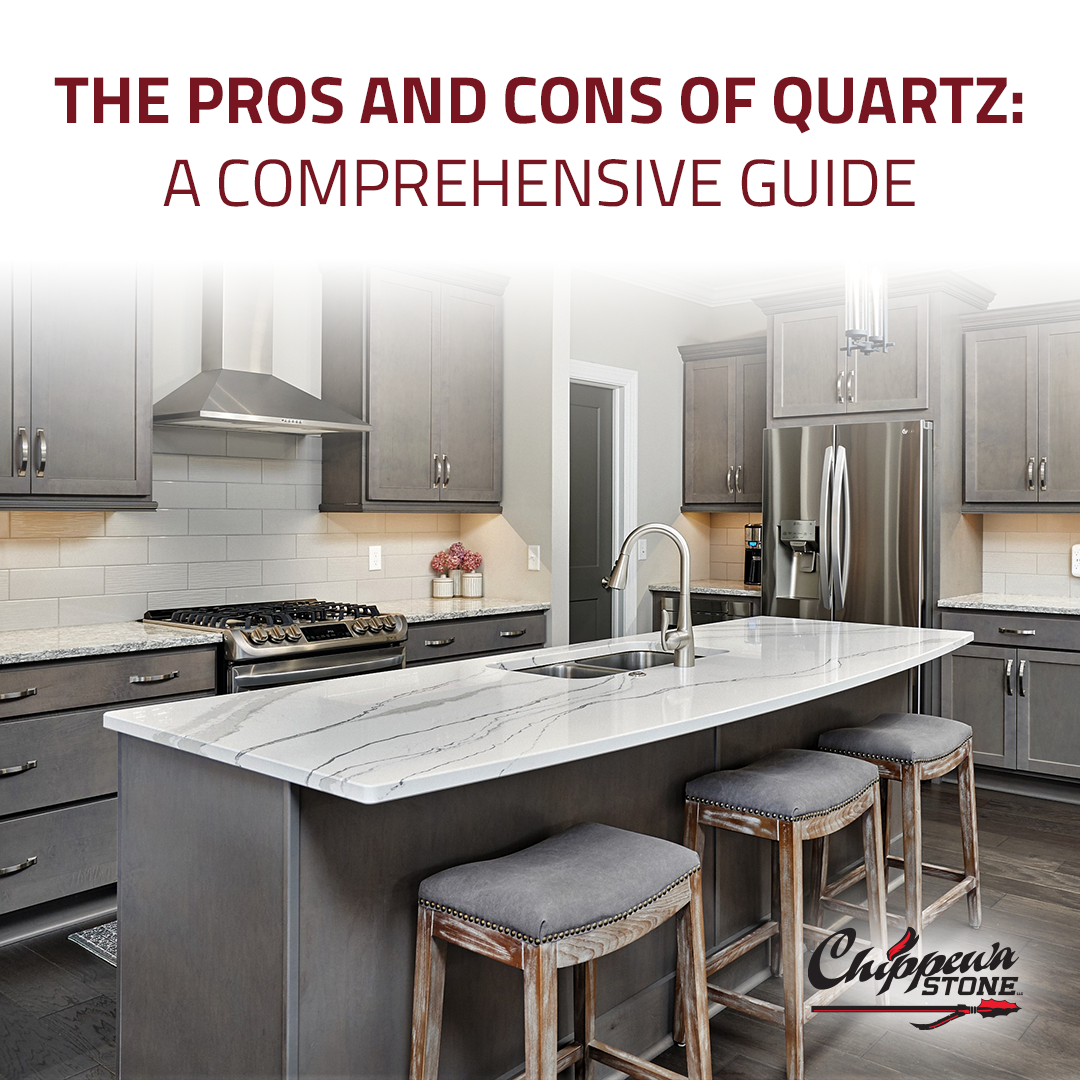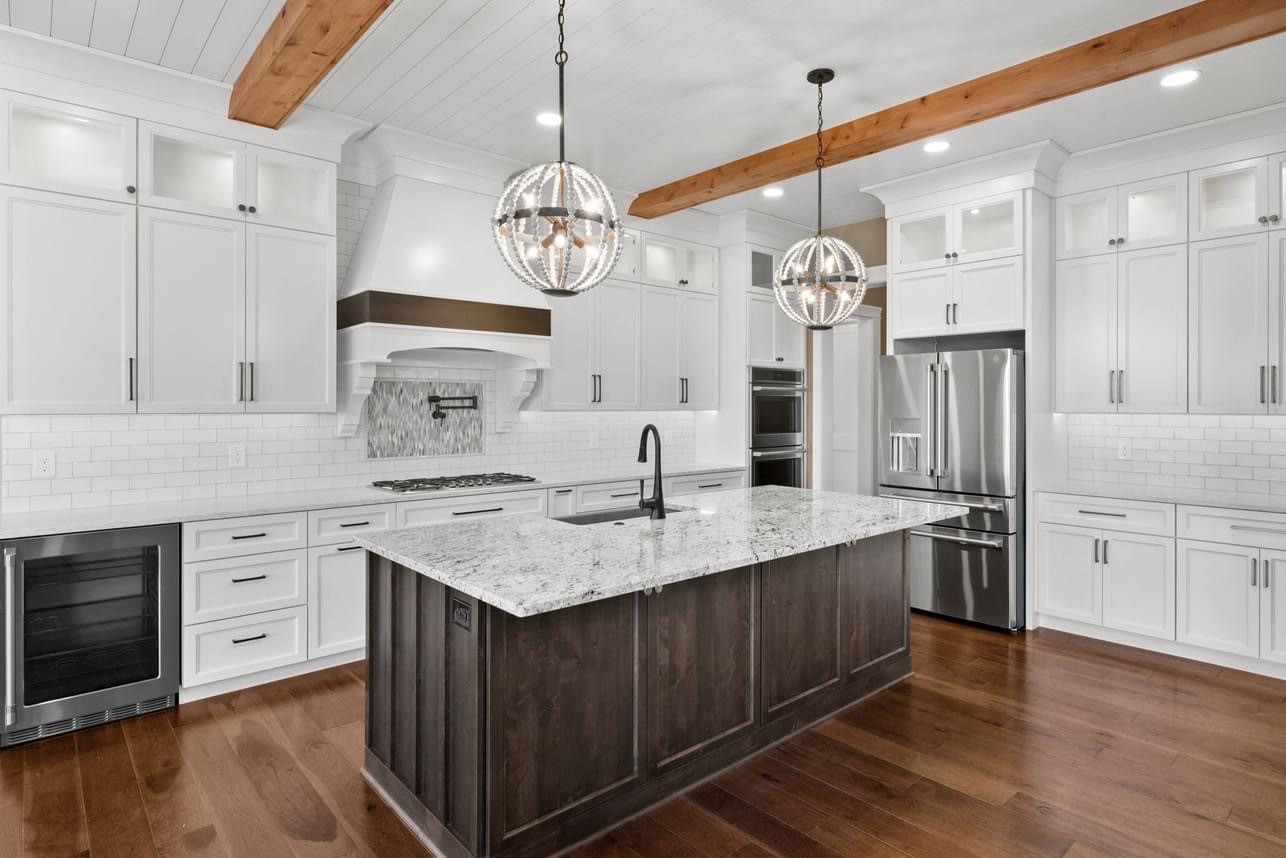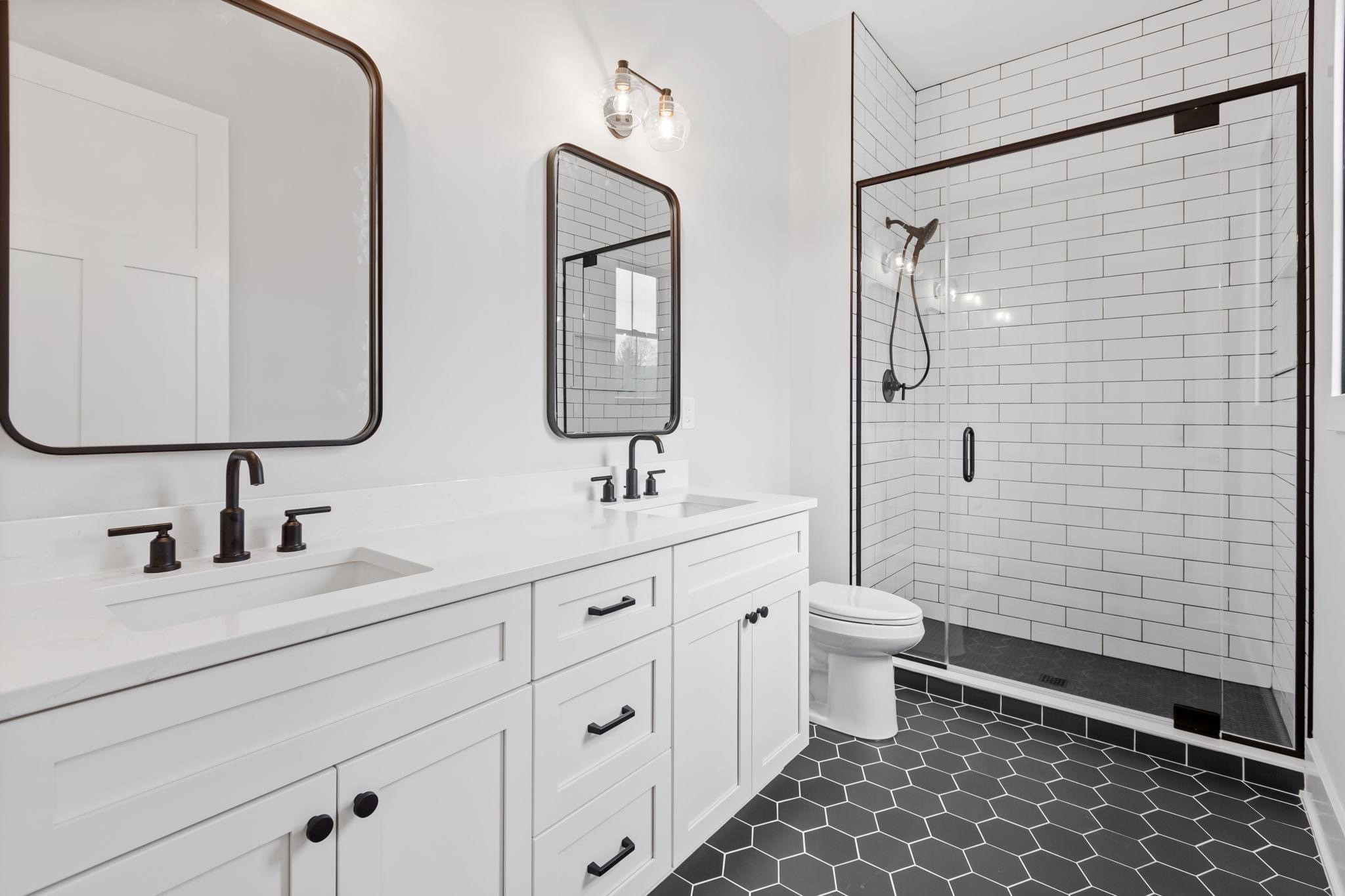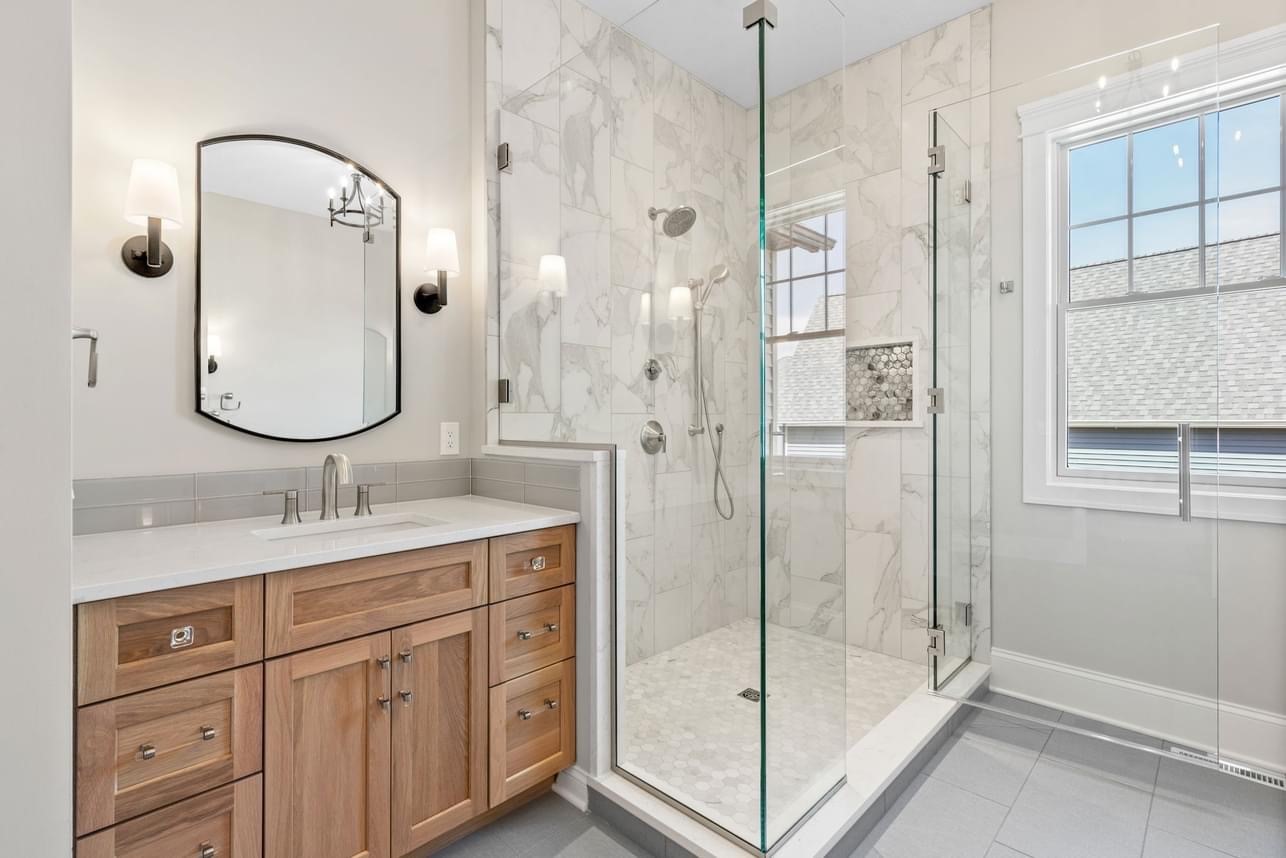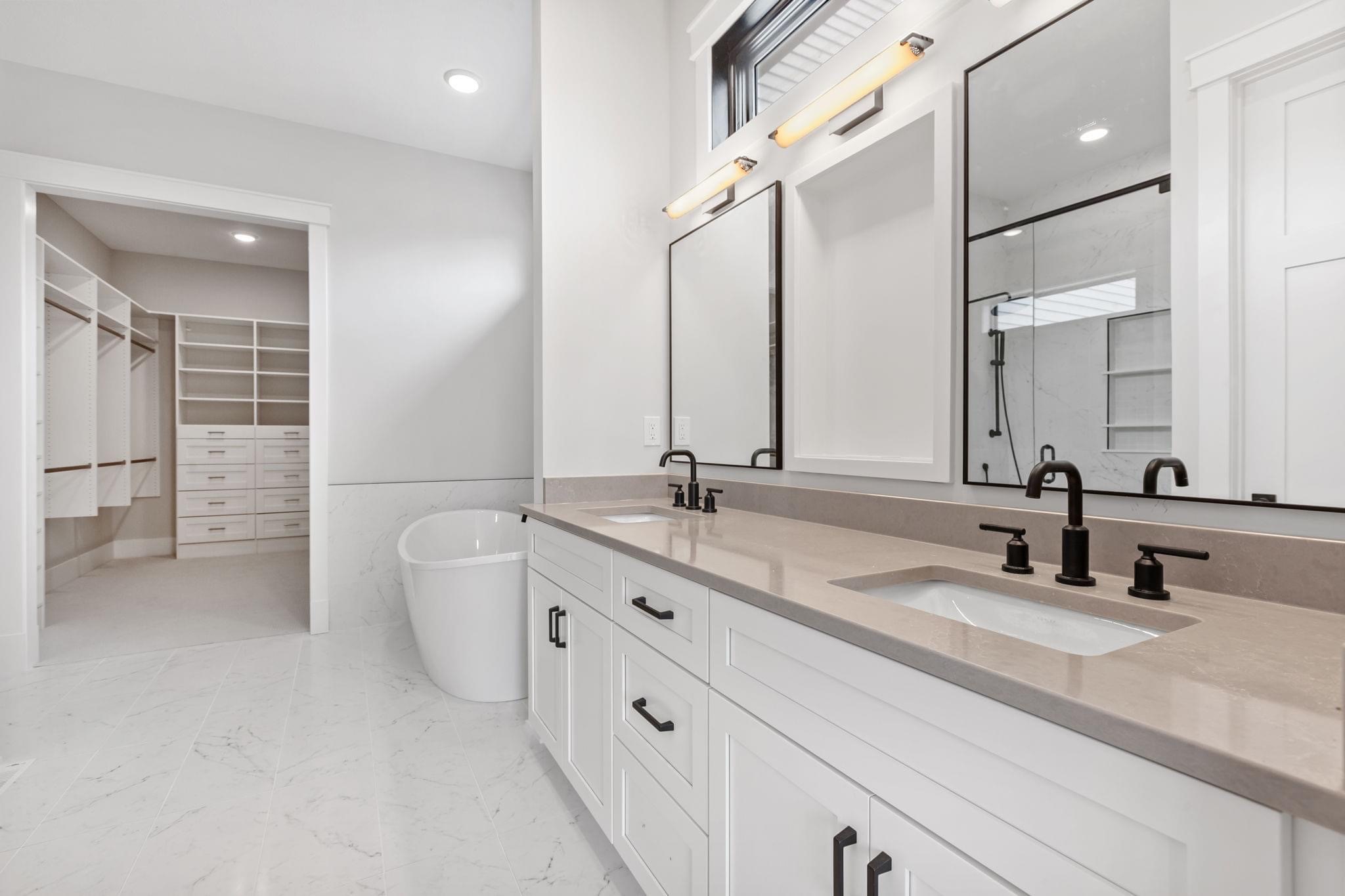Quartz is one of the most popular materials for countertops and various other home applications. Renowned for its durability and aesthetic appeal, it offers a blend of benefits that make it a top choice for many homeowners. However, like any material, quartz comes with its own set of drawbacks. This comprehensive guide explores the pros and cons of quartz to help you make an informed decision for your next project.
What is Quartz?
Before diving into the pros and cons, it’s essential to understand what quartz is. Quartz countertops are engineered surfaces made from a combination of natural quartz crystals and resin. Typically, the mix consists of around 90-95% crushed quartz crystals and 5-10% polymer resins, pigments, and additives. The result is a non-porous, durable surface that mimics the appearance of natural stone.
The Pros of Quartz
- Durability and Strength: Quartz is known for its exceptional durability and strength. The combination of natural quartz crystals and resin creates a surface that is highly resistant to scratches, dents, and cracks. This makes it an ideal choice for high-traffic areas like kitchens and bathrooms. Unlike some natural stones, quartz does not require sealing, which further enhances its durability.
- Low Maintenance: One of the standout features of quartz is its low maintenance requirements. Unlike natural stones such as granite or marble, quartz surfaces are non-porous. This means they do not absorb liquids, reducing the risk of stains and bacterial growth. A simple routine of regular cleaning with mild soap and water is usually sufficient to keep quartz surfaces looking their best.
- Consistency in Appearance: Quartz countertops offer a high level of consistency in appearance, which is a significant advantage for homeowners who prefer a uniform look. Since quartz is an engineered product, it can be manufactured in a wide range of colors, patterns, and finishes. Whether you’re looking for a sleek, modern design or a more traditional appearance, quartz can be tailored to meet your aesthetic preferences.
- Variety of Colors and Patterns: With quartz, you have access to an extensive range of colors and patterns. The versatility of quartz allows you to find the perfect match for any interior design style. From classic whites and grays to bold, vibrant hues and intricate patterns, quartz offers countless options to suit your taste. Additionally, quartz can be designed to mimic the look of other natural stones like marble or granite, providing you with the best of both worlds.
- Eco-Friendly Options: Many quartz manufacturers are increasingly focusing on sustainability and environmental responsibility. Recycled quartz, which incorporates post-consumer and post-industrial materials, is one such option. By choosing eco-friendly quartz, you can enjoy the benefits of this versatile material while also contributing to a greener environment.
- Resistance to Stains and Bacteria: The non-porous nature of quartz makes it highly resistant to stains and bacteria. Unlike porous materials that can absorb liquids and harbor harmful microorganisms, quartz surfaces remain clean and sanitary with minimal effort. This is particularly advantageous in kitchen and bathroom settings, where hygiene is a top priority.
The Cons of Quartz
- Higher Initial Cost: While quartz offers many advantages, it does come with a higher initial cost compared to some other materials. The price of quartz countertops can vary based on factors such as color, pattern, and thickness. While it is a long-term investment, the upfront cost might be a consideration for those on a tight budget.
- Not Heat Resistant: Quartz surfaces are not as heat-resistant as some other materials. Direct exposure to high temperatures, such as hot pots or pans, can damage the surface. To avoid potential issues, it’s essential to use trivets, hot pads, or other heat-resistant barriers when placing hot items on a quartz countertop. Unlike natural stones like granite, which can tolerate high temperatures better, quartz requires more cautious handling.
- Potential for Scratching: While quartz is generally resistant to scratches, it is not entirely impervious to them. Sharp or abrasive objects can potentially scratch the surface, especially if the resin layer is compromised. To prevent scratches, it’s advisable to use cutting boards and avoid dragging heavy or sharp objects across the quartz surface.
- Seams Can Be Noticeable: Quartz countertops are typically installed in sections, which means seams are often visible. While fabricators work to make seams as inconspicuous as possible, they may still be noticeable, particularly with certain patterns and colors. If a seamless appearance is essential for your design, you may need to consider other options or work with your installer to minimize the visibility of seams.
- Not as Unique as Natural Stone: While quartz can mimic the appearance of natural stone, it may lack the unique, one-of-a-kind characteristics found in materials like marble or granite. Natural stones often have distinct veining, color variations, and imperfections that give them a unique charm. If you’re looking for a completely unique surface with natural variations, quartz might not provide the same level of individuality.
- May Be Susceptible to UV Damage: Quartz surfaces can be susceptible to UV damage, particularly if they are exposed to direct sunlight for extended periods. Over time, UV rays can cause the color of the quartz to fade or alter. While this is generally not a significant issue in typical indoor settings, it may be a consideration for outdoor applications or areas with high sun exposure.
Comparing Quartz to Other Materials
When deciding on the best material for your project, it can be helpful to compare quartz to other popular options. Here’s how quartz stacks up against some common alternatives:
Quartz vs. Granite
- Durability: Both quartz and granite are durable, but granite can be more prone to chipping and requires regular sealing. Quartz is non-porous and generally easier to maintain.
- Appearance: Granite has unique, natural variations, while quartz offers consistency in color and pattern.
- Maintenance: Quartz requires less maintenance due to its non-porous nature, whereas granite needs periodic sealing.
Quartz vs. Marble
- Durability: Marble is softer and more susceptible to scratching and staining compared to quartz. Quartz is more durable and resistant to daily wear.
- Appearance: Marble offers a classic, elegant look with natural veining, while quartz can mimic marble’s appearance but provides a more uniform surface.
- Maintenance: Quartz is easier to maintain with its non-porous surface, whereas marble requires regular sealing and careful cleaning to prevent damage.
Quartz vs. Soapstone
- Durability: Both quartz and soapstone are durable materials, but they have different characteristics. Quartz is engineered for durability, offering resistance to scratches and stains. Soapstone is a natural stone that is softer and more prone to scratches but can be easily sanded to repair minor damage. Soapstone also tends to be more resistant to heat due to its high density and low thermal conductivity.
- Appearance: Quartz offers a wide range of colors and patterns due to its engineered nature, providing a consistent and uniform appearance. Soapstone, on the other hand, has a unique, natural look with a soft, matte finish that develops a patina over time. The color of soapstone can range from light gray to dark green, with natural veining that adds to its charm.
- Maintenance: Quartz is low-maintenance and does not require sealing due to its non-porous surface. While soapstone is relatively low-maintenance and more resistant to staining compared to other natural stones, it is still prone to absorbing oils and other substances if not properly cared for.
- Heat Resistance: Soapstone has superior heat resistance compared to quartz. It can withstand high temperatures without damage, making it a good choice for areas where heat exposure is a concern. Quartz, while heat-resistant to a degree, can be damaged by high temperatures, so it’s essential to use protective measures.
Installing Quartz Countertops
If you’ve decided that quartz is the right choice for your project, understanding the installation process is crucial. Here’s an overview of what to expect:
- Preparation and Measurement: Before installation, accurate measurements and preparation are essential. The fabricator will need detailed measurements of your space to cut the quartz slabs to fit perfectly. Proper preparation of the base and cabinetry is also crucial to ensure that the countertops are installed securely.
- Seams and Edges: Discuss seam placement and edge profiles with your installer. While quartz countertops can be fabricated to minimize visible seams, some seams may still be present, depending on the layout. Choose edge profiles that complement your design and enhance the overall appearance of your countertops.
- Maintenance and Care: Once installed, maintaining your quartz countertops is relatively straightforward. Regular cleaning with mild soap and water will keep the surface looking its best. Avoid using harsh chemicals or abrasive cleaners, as they can damage the surface.
In conclusion, quartz is a versatile and popular material for countertops and various home applications, offering a range of benefits such as durability, low maintenance, and a wide variety of colors and patterns. However, it also comes with some drawbacks, including a higher initial cost and potential issues with heat resistance and seam visibility.
By weighing the pros and cons of quartz, you can make an informed decision about whether it’s the right material for your needs. Whether you’re renovating your kitchen, updating your bathroom, or embarking on a new construction project, understanding the characteristics of quartz will help you choose the best material for your home.
At Chippewa Stone, we offer a wide selection of high-quality quartz options to suit every design preference and budget. Our knowledgeable team is here to assist you in finding the perfect quartz surfaces for your project. Visit our showroom or contact us today to explore our extensive range of quartz and other natural stone products. Let us help you bring your vision to life with the ideal material for your home.

